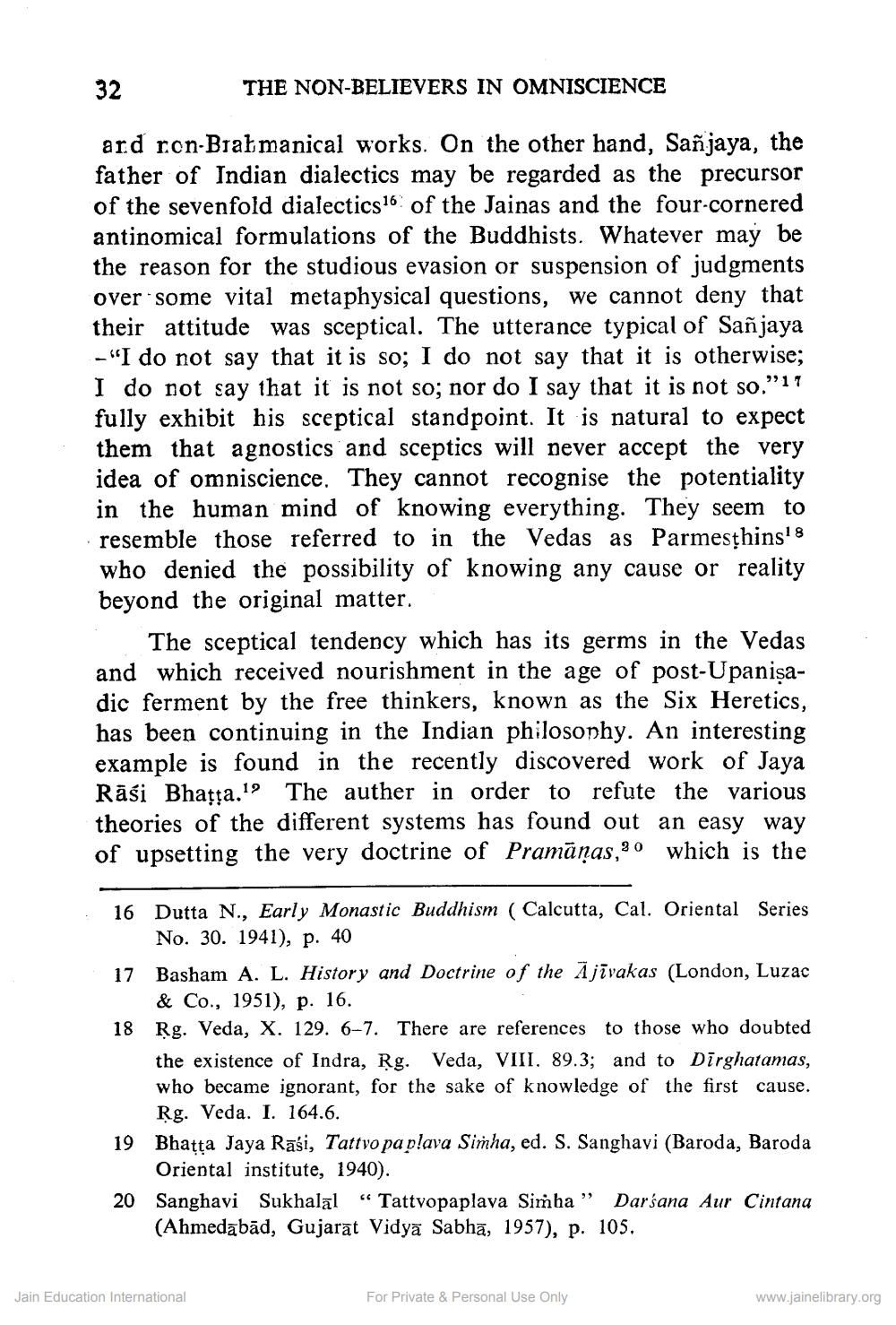________________
THE NON-BELIEVERS IN OMNISCIENCE
ard ron-Biał manical works. On the other hand, Sañjaya, the father of Indian dialectics may be regarded as the precursor of the sevenfold dialectics16 of the Jainas and the four-cornered antinomical formulations of the Buddhists. Whatever may be the reason for the studious evasion or suspension of judgments over some vital metaphysical questions, we cannot deny that their attitude was sceptical. The utterance typical of Sañjaya -"I do not say that it is so; I do not say that it is otherwise; I do not say that it is not so; nor do I say that it is not so."17 fully exhibit his sceptical standpoint. It is natural to expect them that agnostics and sceptics will never accept the very idea of omniscience. They cannot recognise the potentiality in the human mind of knowing everything. They seem to resemble those referred to in the Vedas as Parmesthins! who denied the possibility of knowing any cause or reality beyond the original matter.
The sceptical tendency which has its germs in the Vedas and which received nourishment in the age of post-Upanisadic ferment by the free thinkers, known as the Six Heretics, has been continuing in the Indian philosophy. An interesting example is found in the recently discovered work of Jaya Rāśi Bhațța.19 The auther in order to refute the various theories of the different systems has found out an easy way of upsetting the very doctrine of Pramāṇas, 90 which is the
16 Dutta N., Early Monastic Buddhism ( Calcutta, Cal. Oriental Series
No. 30. 1941), p. 40 17 Basham A. L. History and Doctrine of the Äjīvakas (London, Luzac
& Co., 1951), p. 16. 18 Rg. Veda, X. 129. 6–7. There are references to those who doubted
the existence of Indra, Rg. Veda, VIII, 89.3; and to Dīrghatamas, who became ignorant, for the sake of knowledge of the first cause.
Rg. Veda. I. 164.6. 19 Bhatta Jaya Rāsi, Tattvo pa plava Simha, ed. S. Sanghavi (Baroda, Baroda
Oriental institute, 1940). 20 Sanghavi Sukhalal “Tattvopaplava Simba” Darśana Aur Cintana
(Ahmedabād, Gujarat Vidyā Sabhā, 1957), p. 105.
Jain Education International
For Private & Personal Use Only
www.jainelibrary.org




